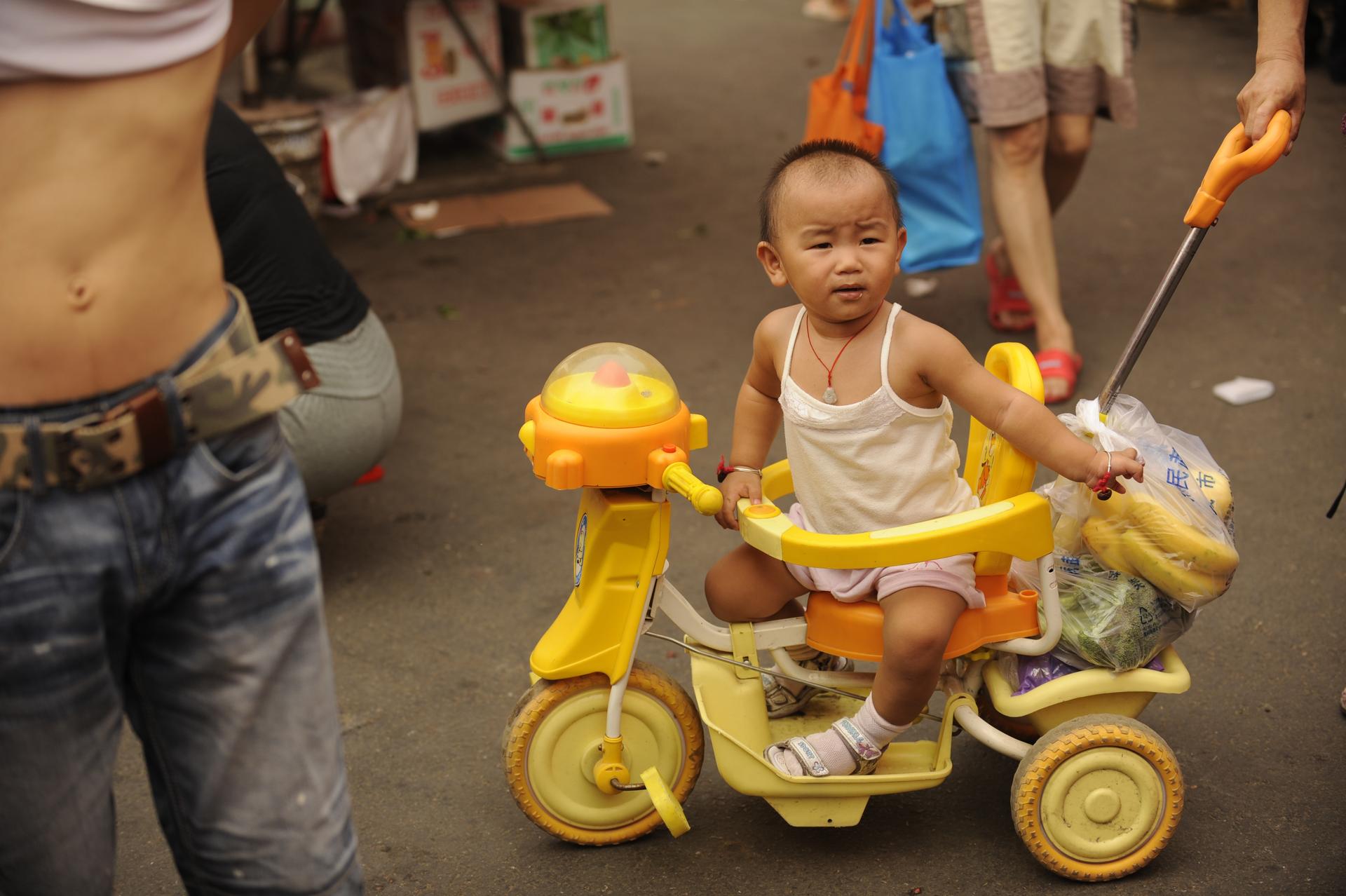One in three toys made in China contains heavy metals, report claims
A child carries fruit and vegetables on his tricycle at a food market in Beijing on August 9, 2011.
One in three toys made in China contains heavy metals, and one in 10 excessive levels of lead, while labels do not warn of the presence of such substances, according to new research.
In November, Greenpeace and IPEN, which campaigns against chemical pollutants, bought 500 toys and kid's products at shopping malls, supermarkets and wholesale markets in five Chinese cities — Beijing, Shanghai, Guangzhou, Wuhan and Hong Kong.
They then tested them with hand-held X-ray scanners and found 163 (32.6 percent) of the toys were tainted
The Greenpeace website ran a summary of the findings on its website, along with a list of recommendations, while IPEN published the full findings (including a Chinese-language version) on its website.
Ten percent failed of the toys tested failed to meet China's national standard of lead content, and more than 30 percent contained five other hazardous heavy metals, The China Daily reported.
These included dolls, balls, pencil boxes, toy cars, and backpacks, the Greenpeace-IPEN summary specified.
The US Centre for Disease Control and Prevention, meantime, advises that there is no safe threshold for lead exposure, and children should have no exposure to the substance.
None of the tainted products contained warning labels to inform consumers about their toxic ingredients, according to the Greenpeace-IPEN researchers.
The toys — even some made by reputable manufacturers — also tested positive for lead, antimony, arsenic, cadmium, chromium and mercury, which can cause permanent damage to a child's nervous and immune systems after entering the body through the skin or mucous membranes, or through the air.
''These contaminated toys not only poison children when chewed or touched, but can enter the body through the air they breathe,'' Ada Kong Cheuk-san, a Greenpeace campaigner, was quoted as saying.
Looking further into the results, The Daily Telegraph determined that:
Most of the toys tested are available only in China, but some belong to brands that are sold overseas. Two toy cars made by Mattel, under its Speed Machines and Hot Wheels brands, were found to contain arsenic, although it was not clear if they were made by the same factories that produce toys for Western markets. Mattel did not comment.
However, the Greenpeace-IPEN report read that:
In short, no matter who or where you buy your toy from in China, there is a possibility that a toxic metal is present.
Our coverage reaches millions each week, but only a small fraction of listeners contribute to sustain our program. We still need 224 more people to donate $100 or $10/monthly to unlock our $67,000 match. Will you help us get there today?
